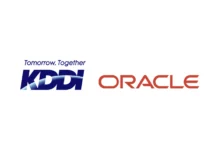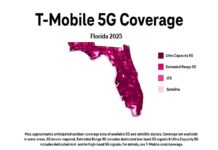Telcos are now in a position to convincingly contribute towards the growth of the artificial intelligence economy. Hailed as the technological revolution of our times, artificial intelligence is making use of more energy as well as computing power than ever before. Nonetheless, there is a critical obstacle that still exists – AI’s unprecedented need when it comes to real-time, high-quality data in order to reach its full potential.
This kind of discrepancy between data availability along with computation capacity has gone on to become a barrier for the entire business. These days, AI models that are sophisticated make use of as much energy as 1000 households every year. But just because of access that is inadequate to right data streams, an unprecedented 40% of that compute capacity gets left idle. Meanwhile, on the other hand, it is estimated that over 65% of AI research initiatives either fail or get delayed because of data-related bottlenecks.
Enter the advent of telcos, which are armed with massive networks along with access to 180 zettabytes of yearly global data traffic.
Apparently, in 2025, telcos have the opportunity to evolve and go beyond being just the connectivity providers and become the critical enablers when it comes to AI-driven insights, thereby unleashing a multibillion-dollar market of monetizing data streams.
The AI data puzzle – computing without the content
Due to strengths in language, predictive analytics, and vision, as well as other areas, AI models are fast developing. But the efficacy of these models depends on their capacity to obtain high-quality real-time data. When data pipelines get ineffective or are lacking, AI systems struggle due to the increases within the processing capacity. This kind of inefficiency is a massive waste of resources apart from impeding innovation.
In order to close this gap, telcos are in a very distinct position. The global connectivity happens to be already supported due to their infrastructure, which goes on to create as well as handle massive data streams, right from cities to consumer devices and industrial IoT networks, etc. IDC goes on to estimate that almost 90% of the data of the world is dark data – information that has been gathered but has never been used—thereby pointing out the untapped resources, which telcos might even take advantage of. By way of strategically activating this data, telcos can solve this puzzle of compute power that’s idle along with the unmet potential of AI.
A gold mine that is untapped – Telco data streams
It is well to be noted that telecom companies happen to be at the center of the skyrocketing progress when it comes to global data traffic. IoT devices, along with the connected spectrum, are anticipated to generate almost 75% of total data in real time by 2025. But rather than being just a primary source of income, a massive portion of this data has long been viewed as something that crops up due to connectivity services.
This kind of view is getting altered in 2025. Telcos are beginning to see how valuable their data assets happen to be, especially as far as enabling the AI processes are concerned.
What are the key opportunities when it comes to monetization?
Collaborations for edge computing- As 5G networks multiply, telcos are able to offer edge-based, low-latency data processing. As per McKinsey, almost 75% of enterprise-generated data is going to come through edge computing by 2025, thereby opening up a market that is worth $250 billion.
Real-time data when it comes to AI training – Either used for autonomous systems, conversational AI, or predictive analytics, AI models go on to flourish on real-time data streams. So as to help quicker and more precise training cycles, Telcos can go ahead and bundle along with selling anonymized, aggregated statistics across AI developers.
AI power services in the case of Enterprises- Telcos can go ahead and offer value-added services such as hyper-personalized marketing solutions when it comes to enterprises or predictive maintenance for industrial equipment by way of merging the data assets with AI capabilities. As per studies, businesses that make use of predictive AI can save almost 20% as far as their operational expenses are concerned.
Energy optimised solutions – Given the energy-intensive face of artificial intelligence, telcos can make utmost use of AI-driven insights in order to optimize their own network functions and hence reduce costs along with improving sustainability. These kinds of solutions can be offered to enterprise customers who are facing the same kind of challenges.
What are the challenges on the road forward?
Although the opportunities happen to be massive, telcos face many hurdles when it comes to capitalizing on this market. One of the major challenges happens to be dated privacy along with security. As the custodian of sensitive data, telcos have to navigate intricate regulatory spectrums in order to ensure compliance while at the same time monetizing their data assets. Data handling practices that are transparent are going to be crucial when it comes to building trust with both partners as well as customers.
Another set of challenges is scalability along with interoperability. In order to support diverse AI workflows, telcos have to make sure that their platforms as well as data pipelines are compatible with numerous AI tools along with frameworks. At the same time, scalability is going to be critical in order to meet the growing demand.
And finally, telcos face the requirement for a cultural shift. Transitioning from a connectivity-focused mindset and going ahead with a data-centric business model needs prominent organizational transition. This happens to include investment in terms of training and talent and also the development of new business processes in order to support this transformation.
What makes 2025 the inflection point?
There are numerous trends that make 2025 the ideal storm for telcos in order to embrace this new role.
AI ecosystems maturation – It is well to be noted that AI technologies have gone on to reach a level of maturity wherein real-world applications happen to be driving significant economic value. This goes on to create a rise in demand for dependable data streams.
5G expansion – The global deployment of 5G networks across telcos with the infrastructure that is required in order to deliver high-speed and low-latency data services which are essential for AI applications.
Growing awareness when it comes to sustainability – As the energy demands of AI come under scrutiny, telcos can provide solutions in order to optimize the compute-resource utilization, thereby aligning with the worldwide sustainability objectives. Reports go on to indicate that optimizing the AI workload can decrease energy consumption by almost 30%.
Shift within the enterprise strategy – Enterprises across industries are increasingly adopting artificial intelligence in order to gain competitive advantages. One of the Gartner studies goes on to predict that by 2025, around 60% of organizations will make use of AI-driven insights in order to elevate decision-making, thereby doubling the demand for dependable data streams.
Telcos are made for AI
It is worth noting that 2025, indeed, is shaping up to be the year telcos, rather than just being delivery drivers of data, begin operating as a platter for AI’s appetite.
By way of unleashing the value of data assets, telcos can shift their role within the digital economy by becoming indispensable players in the AI spectrum. The point here to notice this evolution is not just about new revenue streams, but it is more about redefining what it means to be Telco in the 21st century. The companies that make use of this opportunity and moment will not just drive AI automation and innovation but also secure their position as leaders when it comes to a data-driven world.
As we go on to enter this exciting new chapter, one thing is for sure – the future of AI, along with the future of telcos, is indeed linked. And together they are going to shape the next wave when it comes to technological progress, thereby transforming the societies and, of course, the industries.























